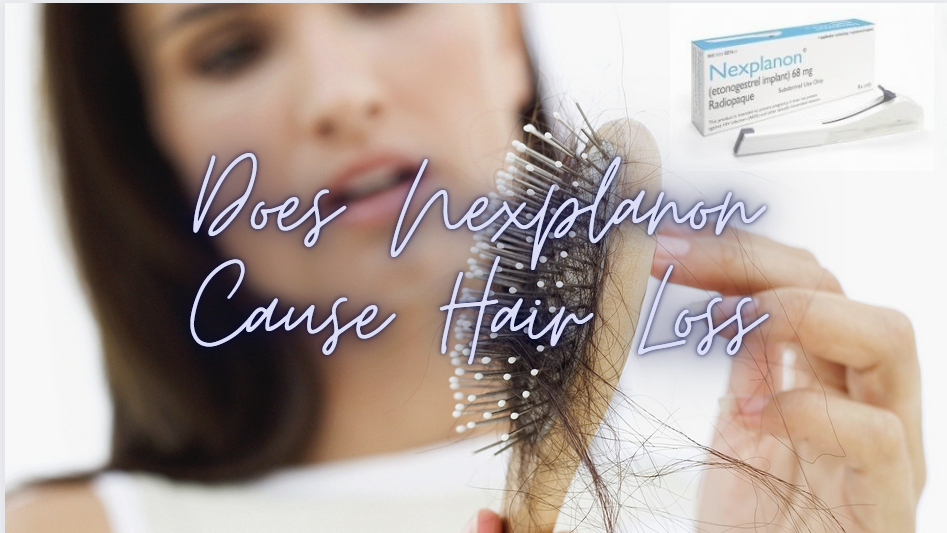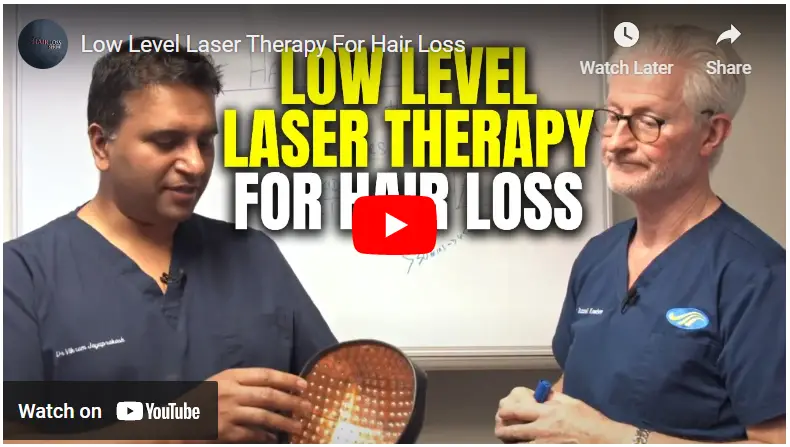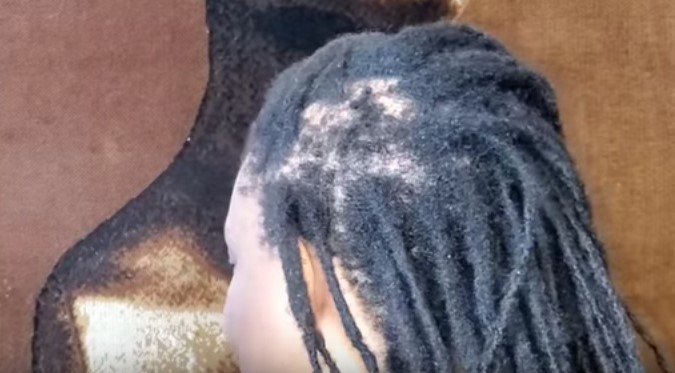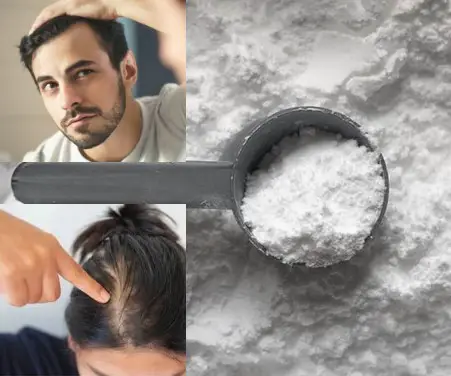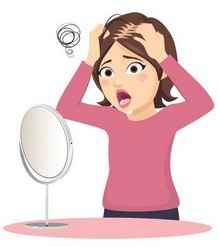Learn about the side effects of Nexplanon, a hormonal birth control implant, which is a popular form of contraception among women. However, some women have reported experiencing hair loss after receiving the Nexplanon implant. This has raised concerns about the link between birth control and hair loss. In this article, we will explore the potential causes of hair loss from Nexplanon and how to prevent it.
Nexplanon is a type of birth control that is implanted under the skin of the upper arm. It is hormonal birth control that releases the progestin hormone to prevent pregnancy. But, while there is no direct link between Nexplanon and hair loss, some women have reported experiencing hair loss while using birth control. According to the Nexplanon prescribing information, hair loss is a rare side effect of birth control, affecting less than 1% of women who use it.
The cause of hair loss in women who use Nexplanon is not entirely clear. However, it is believed that the progestin hormone released by birth control can cause hormonal changes that affect hair growth. Progestin can also interfere with the production of androgens, which are hormones that play a role in hair growth.
How Does Nexplanon Work?
Before we dive deeper into the relationship between Nexplanon and hair loss, let’s first discuss how the birth control implant works.
Nexplanon is a small, flexible rod that is inserted under the skin of your upper arm. It contains the hormone progestin, which is slowly released into your bloodstream over a period of three years. A synthetic equivalent of the hormone progesterone, which is created naturally by the ovaries, is called progestin.
The progestin in Nexplanon works by thickening the mucus in your cervix, which makes it difficult for sperm to reach an egg. It also thins the lining of your uterus, which makes it less likely for a fertilized egg to implant and grow.
In addition to preventing pregnancy, Nexplanon can also help regulate your menstrual cycle and reduce painful menstrual cramps.
Can Nexplanon Cause Hair Loss?
Now that we understand how Nexplanon works, let’s address the question at hand: does Nexplanon cause hair loss?
While hair loss is not listed as a common side effect of Nexplanon, some women have reported experiencing hair loss while using the birth control implant.
In fact, a study found published in the Journal of Clinical and Aesthetic Dermatology found that 6.6% of women using Nexplanon experienced hair loss.
So, why does hair loss occur in some women while using Nexplanon? Although the precise mechanism is not entirely understood, it is thought that Nexplanon’s progestin hormone may be involved.
Progestin can cause an increase in androgen levels in the body. Androgens are male hormones that are also present in females but at lower levels. When androgen levels increase, it can lead to a condition called androgenic alopecia, which is a type of hair loss that affects both men and women.
What is Hair Loss?
Millions of individuals throughout the world suffer from hair loss, which is a common condition. It can occur for various reasons, including genetics, stress, hormonal changes, and medical conditions. Hair loss can manifest in different forms, such as thinning hair, bald spots, or complete baldness.
What are the Symptoms of Hair Loss?
If you are experiencing hair loss while using Nexplanon, you may notice thinning hair, bald spots, or hair shedding. Hair shedding is a natural and normal process that occurs as old hair falls out and is replaced by new hair. However, if you are shedding more hair than usual or notice that your hair is not growing back, it may be a sign of hair loss.
What Can You Do About Hair Loss?
If you are experiencing hair loss while using Nexplanon, there are several things you can do to help manage the condition. Here are some tips:
Speak to your doctor: If you are concerned about hair loss, speak to your doctor. They can help determine the underlying cause of your hair loss and recommend the appropriate treatment.
Switch to a different birth control: If you suspect that Nexplanon is causing your hair loss, you may want to consider switching to a different form of birth control. There are many other options available, such as birth control pills, patches, and IUDs.
Take care of your hair: While you are experiencing hair loss, it’s essential to take care of your remaining hair. Use gentle shampoos and conditioners, avoid heat-styling tools, and be gentle when brushing or combing your hair.
Consider hair loss treatments: There are various treatments available for hair loss, such as minoxidil and finasteride. These treatments can help stimulate hair growth and prevent further hair loss.
Other Factors That Can Contribute to Hair Loss
While Nexplanon may be a factor in hair loss for some women, it’s important to note that there are many other factors that can contribute to hair loss as well. These include:
- Genetics: If hair loss runs in your family, you may be more prone to experiencing it yourself.
- Nutrition: A diet lacking essential nutrients, such as iron or protein, can contribute to hair loss.
- Stress: Physical or emotional stress can lead to hair loss.
- Medical conditions: Certain medical conditions, such as thyroid disorders or autoimmune diseases, can cause hair loss.
- Medications: Some medications, such as chemotherapy drugs or blood thinners, can cause hair loss as a side effect.
- If you are experiencing hair loss while using Nexplanon, it’s important to consider all of these factors and consult with a healthcare provider to determine the underlying cause.
What Can You Do About Hair Loss While Using Nexplanon?
If you are experiencing hair loss while using a Nexplanon implant, there are a few things you can do to help manage the issue:
- Discuss your concerns with your healthcare provider. They may be able to recommend a different form of birth control insertion that does not contain progestin or suggest a treatment plan for your hair loss.
- Take good care of your hair. Use gentle, sulfate-free shampoos and conditioners, and avoid heat-styling tools, such as straighteners or curling irons, as much as possible.
- Eat a balanced, nutrient-rich diet that includes plenty of protein, iron, vitamins, and minerals from various food sources. This includes:
1. Lean proteins: Choose lean sources of protein such as chicken, turkey, fish, beans, lentils, tofu, and soy products.
2. Iron-rich foods: Include iron-rich foods such as lean red meats, seafood, beans, spinach, broccoli, and fortified cereals.
3. Whole grains: Whole grain products provide essential vitamins, minerals, and fiber. Choose whole-grain bread, cereals, pasta, and brown rice.
4. Fruits and vegetables: Eating plenty of colorful fruits and vegetables will ensure that you get a variety of nutrients, including vitamins, minerals, and phytochemicals.
5. Healthy fats: Include healthy fats in your diet, such as nuts, seeds, avocados, and olive oil.
It is important to avoid processed foods that have added sugars, unhealthy fats, and high amounts of sodium. It is also important to stay hydrated by drinking plenty of water throughout the day.
Possible side effects of Nexplanon
While Nexplanon is generally a safe and effective form of birth control, like any medication, it can have the risk of side effects. Some women may experience serious mild side effects while using Nexplanon, including:
- Changes in menstrual bleeding: Many women using Nexplanon experience changes in their menstrual bleeding patterns, such as irregular periods, lighter periods, or no periods at all.
- Headache: Some women using Nexplanon may experience headaches.
- Weight gain: A small percentage of women using Nexplanon may experience weight gain.
- Acne: Some women using Nexplanon may experience acne.
- Breast tenderness: A small percentage of women using Nexplanon may experience breast tenderness.
- Mood changes: Some women using Nexplanon may experience mood changes, such as depression, anxiety, or irritability.
- In rare cases, Nexplanon can cause more serious side effects. These can include:
- Blood clots: There is a small risk that Nexplanon can increase the risk of blood clots, which can be life-threatening if they travel to the lungs or brain.
- Ectopic pregnancy: While Nexplanon is a highly effective form of birth control, it is not 100% effective. There is a small chance of pregnancy, and if pregnancy occurs while using Nexplanon, it is more likely to be an ectopic pregnancy (a pregnancy that occurs outside the uterus).
- Allergic reaction: Some women may have an allergic reaction to Nexplanon, which can cause symptoms such as hives, itching, and difficulty breathing.
Does Nexplanon cause hair loss? lets Summers
One possible side effect of Nexplanon that has been reported by some women is hair loss. Hair loss can be a distressing side effect for many women, and it is important to understand the possible causes and treatments for this condition.
While hair loss is not a common side effect of Nexplanon, it has been reported in some women. In clinical trials, less than 1% of women using Nexplanon reported hair loss as a side effect. However, it is possible that the actual incidence of hair loss with Nexplanon use may be higher, as not all cases of hair loss are reported to healthcare providers.
Hair loss can be caused by many factors, including genetics, hormonal changes, nutritional deficiencies, and medications. Hormonal birth control methods such as Nexplanon can affect hormone levels in the body, which can potentially lead to hair loss in some women.
The hormones in Nexplanon (etonogestrel) are a type of progestin, which is a synthetic version of the hormone progesterone. Progestin can affect the balance of hormones in the body, which can potentially affect hair growth and lead to hair loss.
The mechanism by which progestin can cause hair loss is not completely understood, but it may be related to the androgenic activity of some progestins. Androgens are male hormones that are also present in women, and they play a role in regulating hair growth. Some progestins, including levonorgestrel (the progestin used in the Mirena IUD), have androgenic activity, which can potentially lead to hair loss in some women.
While etonogestrel (the progestin used in Nexplanon) is not thought to have significant androgenic activity, it is possible that it can still affect hormone levels in a way that leads to hair loss in some women.
What to do if you experience hair loss while using Nexplanon
If you are using Nexplanon and you are experiencing hair loss, it is important to talk to your healthcare provider about Nexplanon insertion and removal. They can evaluate your symptoms and determine if there are any underlying causes for your discomfort or illness. This may involve conducting physical exams, reviewing medical histories, ordering laboratory tests and diagnostic imaging, and referring to specialists as needed. Based on their evaluation, healthcare providers can provide personalized treatment plans to address your specific needs, promote healing, another form of birth control and improve your overall health and well-being.
Can hair loss from Nexplanon be prevented or treated?
If you are experiencing Nexplanon hair loss while using it, there are some steps you can take to help prevent or treat it:
Talk to your doctor or pharmacist: If you are concerned about hair loss, the first step is to tell your doctor. They can help determine if Nexplanon is the cause of your hair loss and recommend alternative birth control options if necessary.
Consider taking biotin supplements: Biotin is a B vitamin that can help promote hair growth and strengthen hair. While it is not a guaranteed solution, some people have reported positive results from taking biotin supplements. However, it’s important to talk to your doctor before taking any new hair growth supplements.
Use gentle hair care products: Using harsh shampoos and styling products can damage your hair and contribute to hair loss. Instead, opt for gentle products that are designed to promote hair health.
Practice good hair care habits: Taking good care of your hair can help prevent hair loss. This includes avoiding excessive heat styling, using a wide-tooth comb to detangle wet hair, and avoiding tight hairstyles that pull on the hair.
Be patient: Hair loss can be a slow process, and it may take several months before you start to notice any improvements. Be patient and consistent with your hair care routine, and give your body time to adjust.
If you are experiencing severe or sudden hair loss, or if your hair loss is causing you significant distress, it’s important to ask your doctor right away. They can help determine if there is an underlying medical condition causing your hair loss and recommend the appropriate treatment.
You will also like:
Vitamins for postpartum hair loss
Conclusion
Nexplanon is a highly effective form of birth control that can provide many benefits for women. However, like all medications, it can have side effects, including hair loss. While hair loss is not a common side effect of Nexplanon, it can occur in some women.
If you are experiencing hair loss while using Nexplanon, it’s important to talk to your doctor. They can help determine if Nexplanon is the cause of your hair loss and recommend alternative birth control options if necessary. Additionally, there are some steps you can take to help prevent or treat hair loss after having Nexplanon, such as taking biotin supplements, using gentle hair care products, and practicing good hair care habits.
Overall, it’s important to remember that hair loss is a common issue that affects many people, and it’s often not a cause for alarm. By taking good care of your hair and talking to your doctor if you have concerns, you can help promote hair health and feel confident in your appearance.
Sources
Here are five sources on the topic “Nexplanon and hair loss”:
- “Hair loss and hormonal contraceptives: A practical guide” by Dr. Briden, ND, available at https://www.larabriden.com/hair-loss-hormonal-contraceptives-a-practical-guide/
- “Nexplanon Side Effects: Hair Loss” by RxList, available at https://www.rxlist.com/nexplanon-side-effects-drug-center.htm#hair_loss
- “Nexplanon and Hair Loss: Is There a Link?” by Healthline, available at https://www.healthline.com/health/birth-control/nexplanon-and-hair-loss
- “Hair loss: Can birth control cause it?” by Mayo Clinic, available at https://www.mayoclinic.org/healthy-lifestyle/womens-health/expert-answers/birth-control-pills-hair-loss/faq-20057803
- “Nexplanon: Uses, Dosage, Side Effects – Drugs.com” by Drugs.com, available at https://www.drugs.com/nexplanon.html
- AI Powered Bald Filter Online 2024: See Yourself with No Hair! - January 19, 2024
- Harklinikken Bad Reviews 2024: Analyzing Negative Feedbacks - January 18, 2024
- How to Get the Alex Eubank Hair | Step-By-Step Tutorial 2024 - January 18, 2024

